Over the course of the last few years, meditation has been regaining a place of popularity within our culture. Mindfulness, often linked with meditation, has also seen a huge resurgence as a pop culture reference, but it’s important to know that studies have been linked to the effectiveness of mindfulness. In fact, promising evidence has shown that mindfulness can be linked to better self-awareness and reduction of stress, as well as better sleep. [1]Frank, J.L., Reibel, D., Broderick, P. et al. The Effectiveness of Mindfulness-Based Stress Reduction on Educator Stress and Well-Being: Results from a Pilot Study. Mindfulness 6, 208–216 (2015). … Continue reading Mindfulness sees its origins within several Eastern religions and spiritualities, including Buddhism.
You may have heard of the term mindfulness, or even seen it employed if you haven’t engaged in it yourself. However, what does it mean in connection to treating mental health disorders or people with addiction? Is mindfulness a trend? Understanding what mindfulness is and how it may be applied to addiction treatment can show that mindfulness isn’t just another pop culture term from California. Instead, it is a wellness practice that may positively impact the lives of people in recovery.
What Is Mindfulness and Where Does It Come From?
First, if you’re unfamiliar with the term and what it means, it’s important to start here and gain a better understanding of mindfulness and its sources. Mindfulness is often linked with meditation, in that both are personal and reflective. Mindfulness is a practice that focuses the individual on the present moment and what they are feeling and experiencing in the here and now. The goal is to do this without judgment or any kind of interpretation. You just want to be aware of what you are experiencing right now.
This can be incredibly difficult to do. We’re encouraged to take stock of our feelings, but always with the idea that we should be analyzing those feelings versus just spending time to recognize what we’re feeling. Instead of being reactive, mindfulness focuses on being totally aware and present. While this may not sound like much, consider how quickly we can get anxious or start wondering what may happen with a situation instead of taking in the world around us at that moment.
Mindfulness has deep roots in Buddhism. It’s actually one of the very fundamental beliefs in Buddhism. Called sati, it translates to something like awareness, and it’s the first of the Seven Factors of Enlightenment. Another form of mindfulness, samma-sati is correct awareness, and it is the seventh aspect among the Noble Eightfold Path. The Noble Eightfold Path is what releases people from the birth and rebirth cycle and leads them to nirvana. These are the fundamental teachings of Buddhism at their most basic level.
Why Is Mindfulness Trending in LA?
LA isn’t just a big city. With nearly 4 million people, [2]USCB (2020). Los Angeles city, California. (n.d.). US Census Bureau QuickFacts. Retrieved May 25, 2022, from https://www.census.gov/quickfacts/losangelescitycalifornia Los Angeles is the second largest city in the United States, with New York being the first. Such a large city is host to a fast-paced lifestyle that can leave many feeling lost in the hustle and bustle of everyday life. The aftermath of the Covid-19 pandemic left many people with mental health concerns. With these surging issues, seeking comfort by any means seems obvious.
But why mindfulness? For one, mindfulness is a somewhat easy practice to incorporate into daily life. By taking a few moments each day for a mindfulness practice, a person can gain back perspective in their life. Over time, they may eliminate reactive behavior and instead acquire peace through responsive behaviors.
Health and wellness have long been a part of LA culture, with yoga being one of the practices with the most longevity. The health benefits of yoga are massive. Yoga has shown to help a victim’s body after a major emotionally traumatic episode. [3]Nguyen-Feng, V. N., Clark, C. J., & Butler, M. E. (2019). Yoga as an intervention for psychological symptoms following trauma: A systematic review and quantitative synthesis. Psychological … Continue reading It can assist with the rebuilding of cognitive function in women who are at risk for Alzheimer’s, [4]Krause-Sorio, B., Siddarth, P., Kilpatrick, L., Milillo, M. M., Aguilar-Faustino, Y., Ercoli, L., Narr, K. L., Khalsa, D. S., & Lavretsky, H. (2022). Yoga Prevents Gray Matter Atrophy in Women at … Continue reading and it is an excellent form of exercise. With mindfulness being a part of a regular yoga practice, it seems some of the success of yoga can easily translate to other mindfulness practices.
Why the Beginning Stages of Recovery Are Difficult
Addiction affects not only the body, but also the mind. While a person with addiction recovers from the physical withdrawal of substances, they also must recover from the mental symptoms of withdrawal. Symptoms such as emotional swings, difficulty concentrating, and increased anxiety without the substances that a person has been using will likely increase. This is one of the major reasons why the early stages of recovery can be so difficult for a person with addiction.
Because many of these issues are so challenging to manage, without proper attention and care, many people relapse. This is why a treatment facility can be beneficial for someone recovering from addiction. Reputable facilities will recognize the signs and symptoms of these difficulties and can help people regulate their heavy minds during this time. One of the best ways to do this is through counseling and therapy, and also a regular practice of mindfulness during treatment.
How Mindfulness Can Help With Addiction and Mental Health Issues
Mindfulness may seem like little more than the newest and hottest trend around, especially for someone recovering from addiction, but this just isn’t true. Mindfulness has been integrated into many research-backed forms of therapy including stress reduction therapy and cognitive therapy. There are many ways mindfulness can help with addiction and mental health issues. The integration of mindfulness into different forms of therapy often shows high levels of success. In fact, yoga and meditation have shown significant positive results when used as a part of treatment for depression and anxiety. [5]Saeed SA, Cunningham K, Bloch RM. (2019). Depression and Anxiety Disorders: Benefits of Exercise, Yoga, and Meditation. Am Fam Physician 99(10):620-627. Retrieved May 25, 2022, from … Continue reading
One study shows that within a short time span of eight weeks, mindfulness training can actually change the structure of the brain. [6]Massachusetts General Hospital. (2011, January 21). Mindfulness meditation training changes brain structure in eight weeks. ScienceDaily. Retrieved May 23, 2022 from … Continue reading The regions of the brain that deal with empathy, memory, and stress physically changed during this study, showing that a mindfulness practice could physically make positive changes in the brain. This means a brain that is suffering from addiction may be able to be totally re-trained with the integration of mindfulness practices.
People suffering from substance abuse and addiction issues often have underlying mental health disorders. Incidentally, at least one in four Americans who are suffering from severe mental health disorders also are fighting a battle with substance abuse and addiction. [7]US Department of Health and Human Services (2022). Mental Health and Substance Use Co-Occurring Disorders, MentalHealth.gov. Retrieved May 25, 2022, from … Continue reading This suggests a strong correlation between mental health and addiction.
Some of these disorders include:
- Generalized anxiety disorder
- PTSD
- Bipolar disorder
- Depression
- ADHD
- Borderline personality disorder
Because of these co-occurring disorders, treating the underlying mental health concern is vital to helping a person be successful in their recovery. Mental health concerns typically emerge during adolescence. While the brain continues to develop and adapt, the last behaviors to mature are those of impulse control and decision making. Therefore, those with early signs of mental health disorders are significantly more likely to develop substance abuse and addiction issues later in life. [8]NIDA, (2021). The Connection Between Substance Use Disorders and Mental Illness. NIDA Publication. Retrieved May 25, 2022 from … Continue reading
What Is Mindfulness in Recovery?
With so many negative feelings and thoughts floating around in the heads of those people suffering drug addiction, taking the time to train our bodies and minds to quiet those thoughts can be a positive step toward recovery. Often these negative feelings are what lead to a relapse. When facing a trigger and struggling with impulse control, those practicing mindfulness can recognize that while these things are outside their control, the choices they make are not.
With more traditional forms of addiction treatment, mindfulness in addiction rehab can be incorporated to enhance the success of a program. One of the most amazing things that mindfulness can do is it can give a person a moment to check in with themselves and recognize what’s happening in their surroundings that’s causing them distress. When they can take a moment to do that, they can better recognize an issue before it turns into a relapse situation.
Mindfulness gives the power back to those in recovery so that they can feel like they’re in control of their lives again. It can help them to release that helplessness and grow to become more thoughtful and responsive instead of internalizing all the negativity. This brand of self-empowerment can give people the tools they need to help them to navigate through difficult situations they may find themselves in later.
How to Practice Mindfulness in Recovery
Integration of mindfulness during the recovery process can greatly improve the effectiveness of a treatment program. As mindfulness focuses on remaining in the moment and responding to stimuli instead of reacting, there are a number of ways those working toward recovery can practice mindfulness.
Some of these ways include:
-
Yoga
This is a pretty straightforward integration, as mindfulness is typically a part of meditation and yoga practices. The careful and intentional movements of yoga lend themselves well to making you stay in the present moment and focusing on the now.
-
Meditation Practice
As mindfulness is typically already a part of a traditional meditation practice, this is one very common way to practice mindfulness.
-
Enjoying Nature
Entering nature and focusing on the beauty around you is one effective way to incorporate mindfulness. Often, the stressors and triggers of the day can be let go while concentrating on the natural splendor around you. If you’re out on a walk in nature, this can also be called walking meditation.
-
Thoughtful Eating Practices
Typically, eating can cause a lot of stress for someone with underlying mental health concerns. Eating more thoughtfully can help reduce some of the stress of nourishing your body.
-
Focused Breathing
Frequently a part of both yoga and meditation practices, being focused on your breath is one way of reaching a center and not reacting to the stresses around you. Turning your focus to your breathing helps you concentrate on an aspect of life that can be controlled, lessening feelings of stress and helplessness.
-
Acknowledging Thoughts
Intrusive thoughts can be a serious issue for some. Being able to recognize that your thoughts are not reality is one way to quiet a reactive mind and be present in the here and now.
-
Practice Stillness
Especially for those in the City of Angels with the constant on-the-go nature of modern life, being able to just be still for a few moments can have a major impact on mental health. When we can be still, we can recognize more potential within ourselves, rather than focusing on where we should be.
-
Releasing Tension
When we’re in a stressful situation, we often tense up both physically and mentally. When we can take a moment to recognize that tension, and be present in it, we can also take the time to let that tension in our muscles and our minds go. This built-up tension can be released, and our bodies can be at rest.
Mindfulness Is Critical in Addiction Recovery
Frequently, those struggling with an addiction disorder are trying to avoid the troubles or experiences that they are facing, but mindfulness is the opposite of that. Mindfulness shifts the focus to that pain and struggle to help us better understand what our minds are trying to process, rather than just trying to flush the problem away.

CADC II, Certified AOD Counselor
Nora Jenkins has made the quality and committed care we provide at Lilac Recovery Center possible. Nora is experienced in providing care to assist in rebuilding relationships to support healthy, long-term recovery. Her professional background includes clinical management, program administration, and counseling.
References[+]
| ↑1 | Frank, J.L., Reibel, D., Broderick, P. et al. The Effectiveness of Mindfulness-Based Stress Reduction on Educator Stress and Well-Being: Results from a Pilot Study. Mindfulness 6, 208–216 (2015). https://doi.org/10.1007/s12671-013-0246-2 |
|---|---|
| ↑2 | USCB (2020). Los Angeles city, California. (n.d.). US Census Bureau QuickFacts. Retrieved May 25, 2022, from https://www.census.gov/quickfacts/losangelescitycalifornia |
| ↑3 | Nguyen-Feng, V. N., Clark, C. J., & Butler, M. E. (2019). Yoga as an intervention for psychological symptoms following trauma: A systematic review and quantitative synthesis. Psychological Services, 16(3), 513–523. https://doi.org/10.1037/ser0000191 |
| ↑4 | Krause-Sorio, B., Siddarth, P., Kilpatrick, L., Milillo, M. M., Aguilar-Faustino, Y., Ercoli, L., Narr, K. L., Khalsa, D. S., & Lavretsky, H. (2022). Yoga Prevents Gray Matter Atrophy in Women at Risk for Alzheimer’s Disease: A Randomized Controlled Trial. Journal of Alzheimer’s Disease, (87) 2, pp. 569-58. https://doi.org/10.3233/JAD-215563 |
| ↑5 | Saeed SA, Cunningham K, Bloch RM. (2019). Depression and Anxiety Disorders: Benefits of Exercise, Yoga, and Meditation. Am Fam Physician 99(10):620-627. Retrieved May 25, 2022, from https://www.aafp.org/afp/2019/0515/p620.html |
| ↑6 | Massachusetts General Hospital. (2011, January 21). Mindfulness meditation training changes brain structure in eight weeks. ScienceDaily. Retrieved May 23, 2022 from www.sciencedaily.com/releases/2011/01/110121144007.htm |
| ↑7 | US Department of Health and Human Services (2022). Mental Health and Substance Use Co-Occurring Disorders, MentalHealth.gov. Retrieved May 25, 2022, from https://www.mentalhealth.gov/what-to-look-for/mental-health-substance-use-disorders |
| ↑8 | NIDA, (2021). The Connection Between Substance Use Disorders and Mental Illness. NIDA Publication. Retrieved May 25, 2022 from https://nida.nih.gov/publications/research-reports/common-comorbidities-substance-use-disorders/part-1-connection-between-substance-use-disorders-mental-illness |




